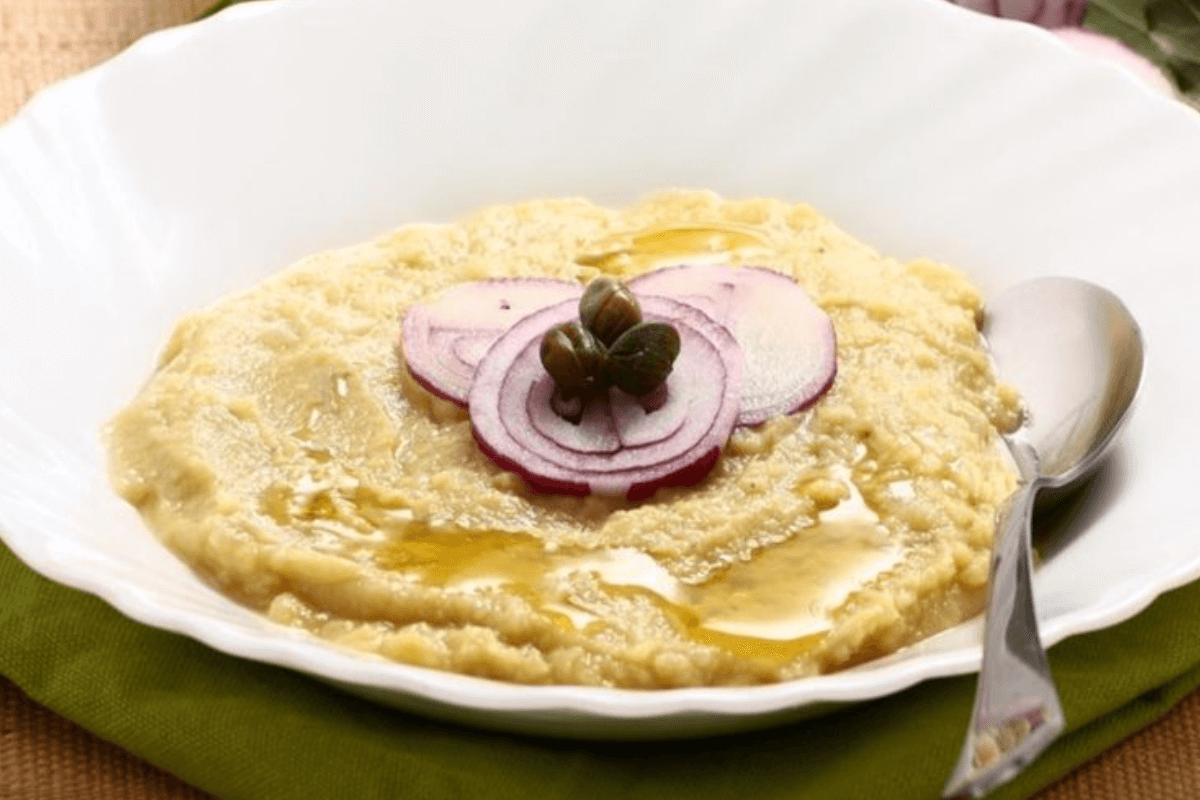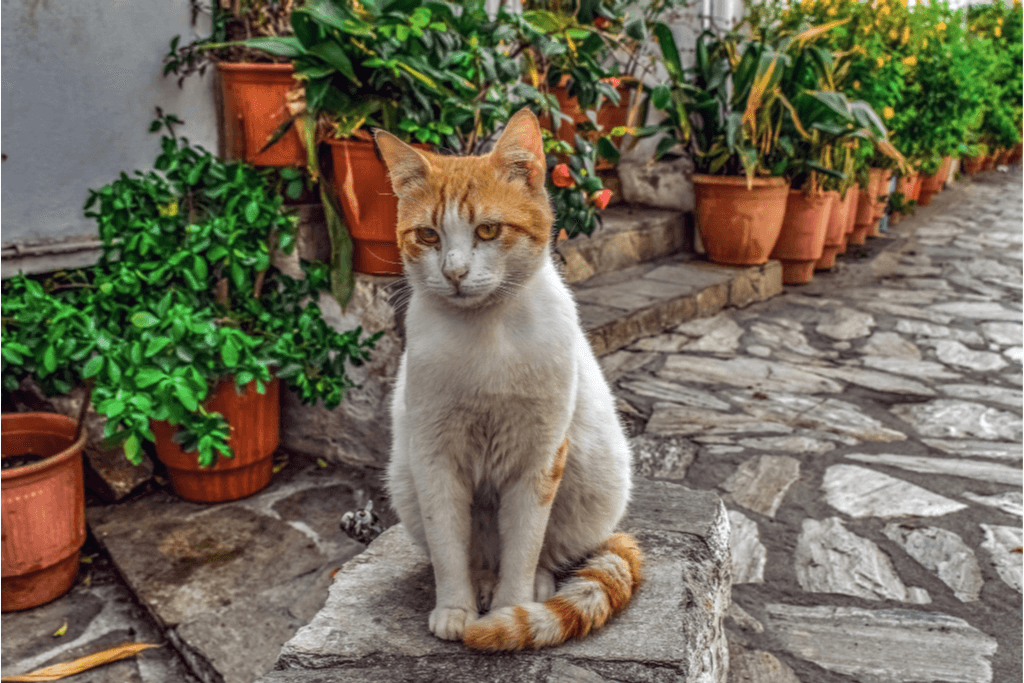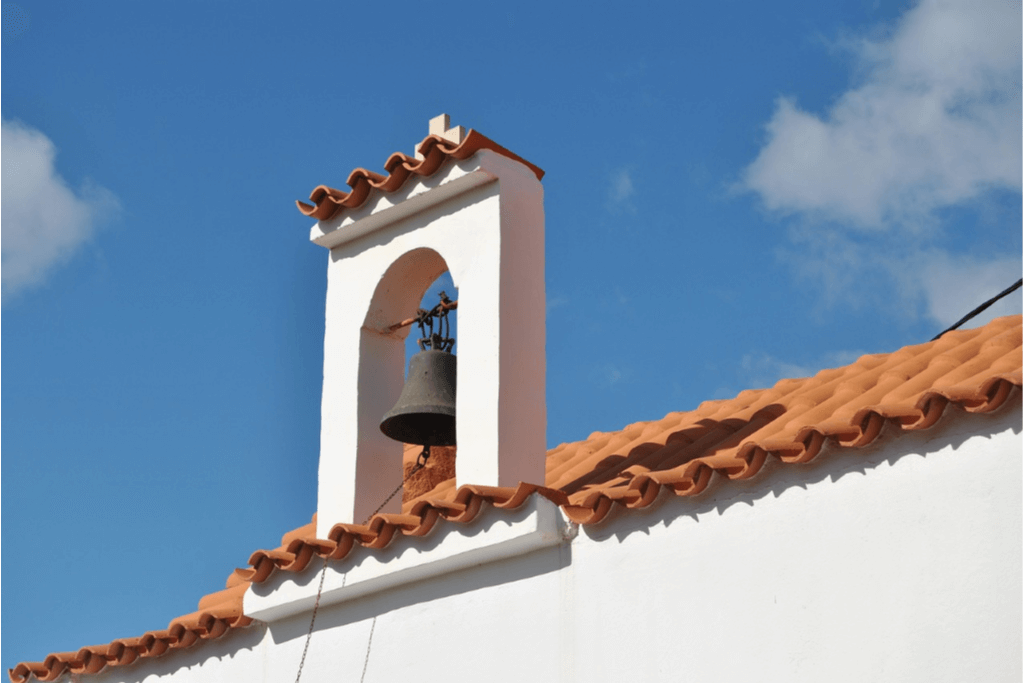An invitation
In exceptional cases, I go to church. Although raised as a Catholic, I do not like the church institution.
During my life here on Crete, I have been to church more often than I would like. Not as a tourist attraction, but to the funerals of people dear to me. A few times to a wedding and once to a baptism.
My neighbour, Kyria* Vasiliki, asked me yesterday if I wanted to come to church today. It is Agios Michael’s name day. The churches here are named after saints and as soon as they are commemorated, it is a celebration. All people who bear that name also celebrate on that day. Our church, which is two storeys above my house, is named after Agios Michael. Because I am a new resident in this deserted and derelict village, I want to testify to my goodwill and have promised to come.
“What will you wear?” she asks me. People now know that I dress like a motley bird and I just assume that she wants to protect me from disapproving looks.
“The black skirt that you find so beautiful.”
My choice has been approved.
An early start
The kabana, the ringing of the bells, wakes me at 7 o’clock and unlike earlier times I have heard them, I do not turn over in bed, but I quickly shoot out, just like the other churchgoers in Sunday clothing. The ladies who otherwise wander through the village with aprons and headscarves in their work clothes have undergone a metamorphosis. Nicely trimmed in shiny shoes and beautiful suits, they look very different and feminine.
I was instructed by the same neighbour, “When you come in, you light a candle and kiss the icon.” I know the protocol. I always burn a candle, for all the loved ones who have gone before me, but kissing an icon that has already been kissed a hundred times goes too far for me. There are limits to my goodwill. “Can it also be a hand kiss?” I ask. “Why a hand kiss?” She wants to know. “Well, honestly, I don’t think it’s so hygienic!”
“Okay, if that’s how you want it, that’s fine.” Eventually, I forget the whole kissing part.
A lively event
The church visit here is a lively social occasion. People talk and greet each other softly during the service, people walk in and out, a huge number of crosses are made, people get up at the same time and sit down again. Your bones and muscles are put to work well and I notice that as I get older, it doesn’t happen that smoothly, let alone elegantly. You do not have to kneel like in the Catholic Church but there is a lot of bowing and the stiffest old people seem to effortlessly double over as the papas (priest) walks past with the holy book or incense and blesses us.
The kissing of his habit is apparently a good thing for the elders. Half burned-out candles are extinguished and thrown away during the service by different people. In the context of reuse, instead of waste, I will carefully ask if I can collect it to melt it into a large candle.
A bit embarrassed
Once inside, I see some familiar faces. Not many, because there are now only thirty people living in the village, of which I have met ten people, partly due to my often visited neighbour. I think that almost the entire community, except for bedridden people, is present. My other neighbour, Kyria Agapi, gestures me diligently to sit next to her. I release a seat between her and me and sit down. And there I am. At such a moment I am so self-conscious.
Eyes check me out. I make the sign of the cross differently from the Greek Orthodox people. From left to right instead of right to left. I occasionally make a sign of the cross and not every time like the others. I didn’t put any money in the sacrificial bowl when I grabbed my candle, others throw coins in it, some paper money. I catch myself with unkind thoughts.
Bread and sweets
During the service, people walk in with cake boxes and loves of bread in plastic bags that are placed in front of the altar. After blessing them, they are taken away by other people. After half an hour they are cut into large triangles and put into wicker baskets and placed on a table at the exit. After the service, everyone gets a hunk of bread when they leave the church. A whole loaf of bread is pushed into my hands during the service. I feel very uncomfortable with that. KyriaVasiliki tells me later that every stranger who is present is offered bread. I was apparently the only odd one out.
The papas* is largely out of sight behind the icono*stasis, where the altar stands. The iconostasis is a colourful partition for the church with icons and with so-called royal doors that lead to the altar. My neighbour is standing with two gentlemen at the front of the church singing psalms. I feel sorry for her, an eighty-year-old lady who is standing for two hours singing. So devoted.
Would God really find that necessary?
Maybe she’s proud and doesn’t want to let herself down.
Or does she have something on her notch and is it a penance?
Tears
After the service, I sit for a while outside on a little wall. Everyone else disappears around the corner. From the wall I look down at the roof of my house, the ruins below and the valley full of olive trees, roads, churches and the lively village where I recently lived below, by the sea. I always get emotional during a Greek Orthodox church service. It is all Greek to me. My Greek does not extend that far, and maybe, therefore, I am more receptive to the energy within the church. And within no time tears roll down my cheeks. The tears quietly land on the scarf around my neck. I see it as a cleansing,
Afterwards, I want to exchange that energy for the divine energy of nature that surrounds me in its greatness.
Sweets, a lot of sweets
Around the corner is an outbuilding and as soon as I am in sight again, I am immediately drawn by the arm by one of the oldest ladies in the village. Amazed by so much power in her hand, I let myself be led. Outside is a group of mostly men and she tells me to sit inside. I can keep the others parea*. Compliant as I am at such a moment, I join them. Women are seated at two long tables. On the tables are countless plates with cookies, cakes and other sweets, home-baked or bought. I get a paper cup with Greek coffee put in my hands and I just let it come to me and enjoy the cordiality of the people.
An old friend
It surprises people that I know one of the oldest ladies, who lives in a nearby village, even higher up in the mountains, so well. She comes to me and greets me warmly. From the first year that I have been living here, I have been visiting her tavern when I make a trip into the mountains with people. She has seen me often there, on her terrace covered with vines, with many important people in my life. My love, my ex-husband and also the father of my children, my biological father with his wife, and with many friends. She makes great omelettes, uses products from her own garden and is a typical example of a very strong old widow clad in black, as I have learned a lot here.
“Who would have thought, almost two decades ago, that we would be sitting here together?” I say, after which she smiles her sweet smile.
I answer the standard questions of the lady who sits next to me and who is proud of her admittedly limited English. A church visit is not only an expression of devotion but apparently also a social event. When my neighbour leaves, I accompany her. Damn it, she’s eighty and outwalks me.
My energy feels light and cheerful again.
Music: Tim McCraw – Humble and Kind
η κυρία – misses, the lady
η παρέα – company, compagnionship
ο παπάς – the priest
η εικόνα – picture, image, figure


